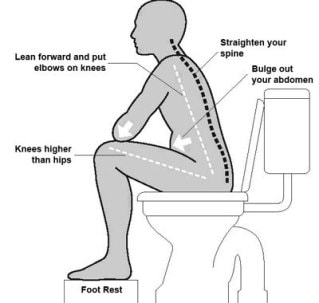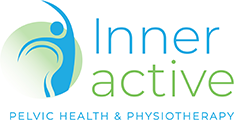
Going to the toilet is a big part of our lives. But unfortunately, it’s not something commonly discussed. As a result, not many of us have a great sense of what is normal and what is not when it comes to bladder and bowel habits.
Some habits are learned early on and unfortunately carried into adult life and can become problems. Here are some habits to optimize your bladder and bowel care.
1) Be aware of your pelvic floor muscles
The pelvic floor muscles are a group of muscles and ligaments at the base of the pelvis. They play an important role in bladder and bowel control hence keeping us continent. Are you aware of what your pelvic floor muscles are doing? Having a sense of awareness of how these muscles are behaving makes it easy to detect when things don’t feel quite right. Like any other muscles in the body, the pelvic floor muscles should be able to contract/tighten as well as relax fully to allow complete bladder and bowel emptying.
2) Drink adequate fluids
Unless instructed otherwise by your doctor, about 1.5 to 2 litres of fluid in a day is advised. It is not always the case: the more water you drink the more you have to go to the toilet. It is true the less water you drink the less the bladder will fill up but this can also lead to concentrated urine in your bladder. This can be a bladder irritant meaning that it can upset the lining of the bladder wall. Consequently, what may happen is the bladder will try to empty frequently.
3) Avoid going “just in case”
Essentially what “Just in Case” voiding is, is when you go to the bathroom before you need to, for example before you leave the house, head out on a road trip or a hike just in case you might have to go later. The bladder is able to hold an adequate amount of fluid. It has a well-regulated mechanism in place that lets us know when its time to go when full. When we start emptying it before its full the bladder learns this and can take advantage. Consequently, over time, the bladder gets used to holding smaller amounts, and signals are sent to the brain to go more frequently. This can potentially lead to problems such as urgency and frequency. So really listen to your body go when you actually feel the urge to go.
To avoid this, simply wait to use the bathroom until you truly need to!
On the other end of the spectrum holding for long periods of time (such as more than 3 hours) can also be detrimental. Be mindful of the number of trips you make and trying not to go beyond 3 hours as a guideline.
4) No need to strain
When emptying either bladder or bowels on the toilet no straining should be required. By bearing down to initiate or complete a motion places pressure and stretching on the supporting structures within the pelvic floor and weaken the muscles. With the body’s mechanism, the muscles and sphincters controls are designed to allow emptying to occur without much effort required.  Ensure you have adequate fibre and water intake for important stool regularity and consistency.
Ensure you have adequate fibre and water intake for important stool regularity and consistency.
5) Proper toilet posture
Good posture when sitting on the toilet is vital. This allows proper emptying and reduces strain on the pelvic floor muscles. Try the following
· Lean forward slightly with elbows resting on knees.
· Place your knees higher than your hips ether raising your heels or use of a footstool
· Keep you back straight try not to slump
Push your lower belly out, this helps to relax sphincter muscles in particular the anus(back passage).
These habits are vital for the health and wellbeing of your pelvic organs and muscles. Seek help if you have any problem with your bladder or bowel control.
Get the care you deserve.
Disclaimer: Information in this blog is general and not to be used for medical diagnosis or treatment. Please consult your health care provider if you have any concerns with your bladder and bowel health.
Reach out if and see how a pelvic physiotherapist can help you with your bladder and bowels habits. Contact us HERE





